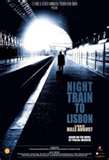 I realize I have collected a number of sentences about imagination vs. reality.
I realize I have collected a number of sentences about imagination vs. reality.
“What a gulf between the self which experiences and the self which describes experience.” Edmund Wilson, I Thought of Daisy from the last one of these posts
“Life is not what we live; it is what we imagine we are living.” Pascal Mercier, Night Train to Lisbon, from the one before
and this one:
“The world in out heads is not a precise replica of reality.” from Thinking, Fast and Slow by Daniel Kahneman, which Larry happens to be reading.
I’ve been pondering this idea a lot lately, the construct we carry in our heads as opposed to the world an infant experiences, for example, one without labels or words. Continue reading “The exemplary sentence and the elusive world”

